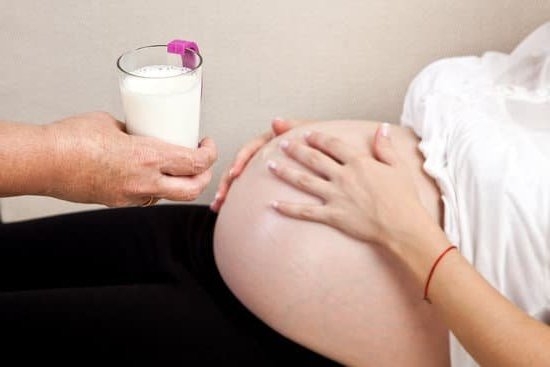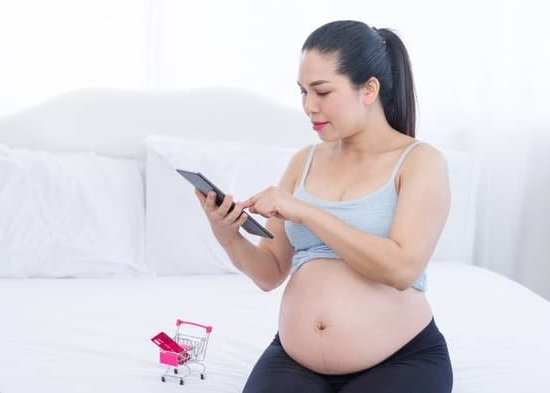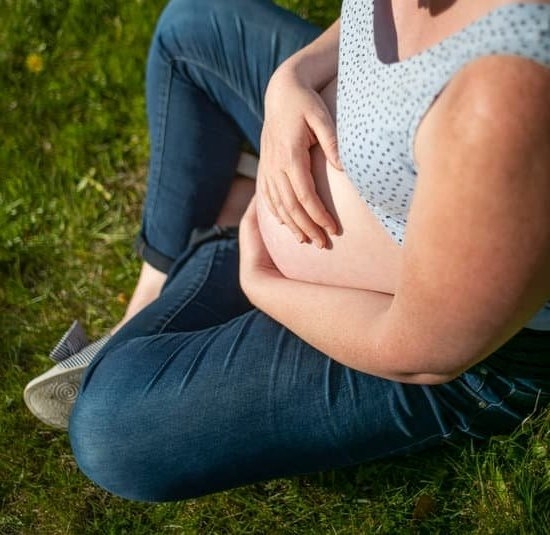Introduction
No, feeling constipated is not a common early sign of pregnancy. Although constipation can be a symptom of pregnancy, it usually does not occur until the second trimester. It can also be caused by factors unrelated to pregnancy, such as dietary changes, dehydration, and lack of fiber intake.
Constipation is defined as having difficulty with producing bowel movements three or fewer times per week, having hard dry stool that is difficult to pass, excessive straining while trying to have a bowel movement, and other physical symptoms such as bloating and cramping. During pregnancy, your body’s digestive system slows down due to an increase in the hormone progesterone. This can lead to constipation which may be noticeable during the second trimester of pregnancy but may become more extreme in late pregnancy when increased pressure on your rectum from the growing baby makes passing stools difficult.
When constipation occurs during pregnancy it is important to stay hydrated and eat high-fiber foods like whole grains, fruits and vegetables. Additionally, you should take regular walks each day which helps stimulate digestion and promotes healthy bowel movements. Avoiding dairy products and processed foods can also help reduce symptoms. If necessary over-the-counter laxatives may be used for short periods of time but should be avoided for extended use because they may interfere with the absorption of other medications or nutrients that are important for the pregnant woman and her fetus’ health.
Causes of Pregnancy Constipation
Constipation is a common symptom during pregnancy, caused by a variety of factors including hormonal changes, poor diet and lifestyle factors. Hormones in the body increase to prepare for the baby and these hormones can slow down digestion, leading to constipation. Additionally, the increased pressure from the uterus on other organs in the body may also cause constipation. Poor diet choices may also be a factor in constipation during pregnancy as women sometimes crave unhealthy food options which are low in dietary fiber. Finally, lifestyle factors such as not getting enough exercise or drinking enough fluids could also contribute to constipation. Pregnant women should try to drink plenty of fluids, get regular exercise and eat a fibre- rich diet full of whole grains and fruits and vegetables to help alleviate the constipated feeling. Taking a warm bath or participating in light yoga can be great ways to help relax and stimulate digestion. Additionally, taking a daily probiotic supplement is recommended as it contains healthy bacteria that helps colonize your intestinal tract and assist with improving motility.
Is Constipation an Early Sign of Pregnancy?
While feeling constipated while pregnant is relatively common, it is not necessarily one of the earliest pregnancy signs. For many women, nausea and other physical or emotional changes start happening before they even realize they’re pregnant.
However, hormone fluctuations during pregnancy can lead to changes that may cause constipation in some women. These hormonal shifts increase a person’s risk of becoming constipated due to slower movement through the intestines and weakened muscle contractions associated with food digestion. This does not occur until after those early signs of pregnancy have already started, usually about 6 weeks into the first trimester.
Scientific research has looked into potential links between constipation in pregnant women and other factors including dietary habits, insufficient fruit and vegetable intake, low levels of physical activity and dehydration. Studies suggest that those who were more physically active or ingested greater amounts of dietary fiber had less difficulty with constipation during pregnancy than those who did not. In some cases, physician prescribed medications such as laxatives or stool softeners may be recommended to help ease the condition if deemed necessary by the physician managing their care.
Considering these factors and seeking medical advice may be beneficial for pregnant women experiencing constipation for more than a few days. It is important for any expecting mother to consult their medical professional if they are experiencing prolonged episodes of constipation, especially later in the pregnancy when there is an increased risk for complications from dehydration resulting from lack of water intake or electrolyte imbalances caused by persistent digestive issues.
Other Possible Causes
Constipation is most commonly associated with early pregnancy, but it can also be caused by a number of other factors. Medications, such as iron supplements and certain types of painkillers, can lead to constipation. Dehydration can cause difficulties passing stools due to lack of water in the digestive system. Similarly, those who are ill may suffer from constipation due to an infection or virus affecting their bodies ability to assimilate food and liquid properly. Eating too much processed or fatty foods, while healthy foods are left out, can lead to difficulty in digestion as well. Finally, it could be possible that your body is simply not producing enough fiber which will leave the stool hard and unlikely to pass through easily. Whatever the cause periodic bowel movement irregularities should always be discussed with one’s medical professional in order to rule out any serious underlying medical issues.
What Should I Do?
No, feeling constipated is not usually considered an early sign of pregnancy. However, if you are trying to conceive and have recently experienced constipation, it may be beneficial to consult your doctor. If you are pregnant and have experienced constipation, symptoms should ease after the first few months of pregnancy as additional hormones help with food digestion. In the meantime, there are steps you can take to ease your symptoms of constipation and help promote a healthy digestive system.
It is important to drink plenty of fluids throughout the day, especially water. Increasing your intake of dietary fiber can also be helpful for relieving constipation. Examples of high-fiber foods include fruits, vegetables, whole grains, nuts and seeds. Experts recommend aiming for about 25 – 40 grams of fiber per day for optimal digestion health. Additionally, regular exercise can help keep your digestive system running smoothly and prevent constipation in the future by stimulating proper bowel movements.
If lifestyle changes fail to improve your experience with constipation or if any other unusual symptoms accompany it like abdominal pain or bleeding from the rectum, contact your medical professional for further instructions as soon as possible.
Conclusion
Feeling constipated is not necessarily an early sign of pregnancy, but it is a possible indicator. Women should pay attention to their body and any changes that occur during pregnancy, as all changes could indicate a potential issue. If feeling constipated does occur, women should drink plenty of fluids and eat foods high in fiber. Regular exercise can also help with symptoms such as constipation. If symptoms persist or worsen, medical advice should be sought from a qualified medical professional. There are also many online resources available for those experiencing pregnancy-related issues such as constipation, including dedicated helplines which offer support and advice from experienced professionals.

Welcome to my fertility blog. This is a space where I will be sharing my experiences as I navigate through the world of fertility treatments, as well as provide information and resources about fertility and pregnancy.





